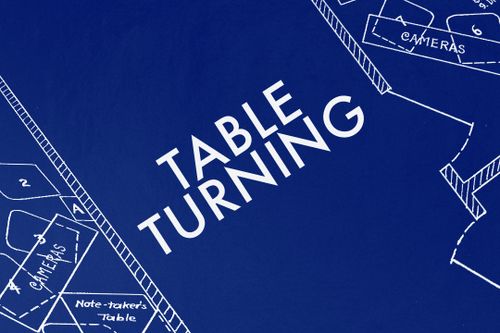Table Turning – Opening

Ormston House presents Table Turning, a solo exhibition by Susan MacWilliam. The exhibition will open on Thursday, 20 November 2025 from 7–9pm and will continue until 21 February 2026.
Over the past three decades, Susan MacWilliam has created a singular body of work. She draws from printed archives, scientific apparatus, and interviews with experts to explore the field of psychical research. In this way she addresses phenomena contested by orthodox science such as clairvoyance, telepathy, and precognition.
In 1997 MacWilliam happened upon a TV documentary about spirit mediums. She found the imagery and choreography of the séance room featured in the programme intriguing. There began an ongoing fascination with how humans have sought to document and quantify the spirit realm.
The title of this exhibition refers to a practice widespread in the late-nineteenth century and held up as evidence of psychic phenomena. Small groups would sit in circles around tables and would, through spiritual influence or subterfuge, make them tilt, rotate, or levitate in ways that contradicted the laws of physics.
Occurrences such as this were common in the house of Dr. T. G. and Lillian Hamilton, who led investigations of psychic phenomena in their home in Winnipeg, Canada between 1918 and 1945. The Hamiltons conducted their experiments in a room with conditions thought to be conducive to spirit activity. Photographs taken in this environment have entered the canon of paranormal photography. For Séance Room, 1931 (2025), MacWilliam has hand-stitched the diagram of the provisional laboratory devised by the Hamiltons.
MacWilliam sheds light upon the gendered relations of mediumship in the late-nineteenth and early-twentieth century. In many cases, mediums were female, while those ‘investigating’ them were predominantly men. Mediumship could provide women with status and a means of independent income. Victorian power relations between men and women could be disrupted, albeit via strategies that were literally otherworldly.
The independence of women is invoked in the vitrine sculpture The Three Arts Club (2025). The artwork is named after a twentieth-century group that supported young women in practising the ‘three arts’ of music, drama, and painting. Family letters from the 1920s reference MacWilliam’s great-aunt staying at the Three Arts Club, London.
The source image from a found postcard shows five women reading in a drawing room of books. MacWilliam imagines the book as a form of technology that allows intellectual exchange from one person to another, a metaphor for telepathy. Literacy gave women access to education and mobility, and reading was a facet of liberation. The book is a portal to knowledge and a means by which we navigate and make sense of the world. Motifs of books, hands, and visual references to the act of reading recur elsewhere in this exhibition.
The idiosyncratic interior of Ormston House has provided a catalyst for the creation of new sculptural elements. In particular, the oversized Corinthian capitals that dominate the gallery have informed modelled and cast pieces in which miniature hands hold books. This iconography is taken from Telepaths, MacWilliam’s collection of photographs and postcards featuring women reading. Some of these are displayed in a cabinet alongside historical books from the artist’s extensive library of psychical research.
The cast artworks in this exhibition recall funerary sculpture encountered by MacWilliam in Parisian cemeteries and are reminiscent of some of her earliest pieces. Their hand-hewn character evokes the expansive bas-relief plasticine works that featured in MacWilliam’s exhibition Curtains at Project Arts Centre, her first solo show in Dublin in 1997.
The exhibition Table Turning has emerged out of meticulous, manual processes: the cutting, stitching, sculpting, and moulding of paper, felt, and clay. The freedoms and surprises of the act of making produce unforeseen visual forms and vocabulary in response to the aesthetics and social implications of psychical research. For MacWilliam “the realisation of ideas and objects in the studio” is akin to “the manifestations and materialisations of the séance room”.
Ormston House is open Wednesday to Saturday, 12–6pm. We are closed for the holidays from 14 December 2025 to 13 January 2026.